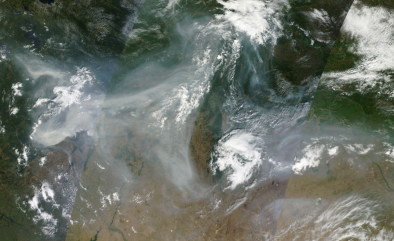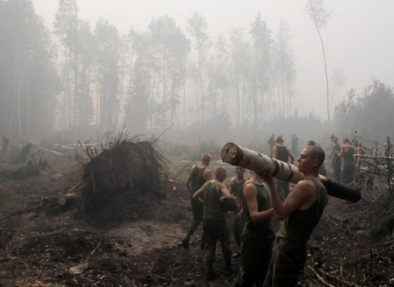Science Source
Role of soil moisture versus recent climate change for the 2010 heat wave in western Russia
- States the severe 2010 heat wave in western Russia was found to be influenced by anthropogenic climate change
- States that soil moisture-temperature feedbacks were deemed important for the buildup of the exceptionally high temperatures
- Quantifies the relative role of both factors by applying the probabilistic event attribution framework
- Analyzes ensemble simulations to distinguish the effect of climate change and the 2010 soil moisture conditions for annual maximum temperatures
- Finds the dry 2010 soil moisture alone has increased the risk of a severe heat wave in western Russia sixfold, while climate change from 1960 to 2000 has approximately tripled it
- Finds the combined effect of climate change and 2010 soil moisture yields a 13 times higher heat wave risk
- Concludes that internal climate variability causing the dry 2010 soil moisture conditions formed a necessary basis for the extreme heat wave
Related Content
Science Source
| Forests
Wildfires Dynamics in Siberian Larch Forests
Evgenii I. Ponomarev, Viacheslav I. Kharuk, and Kenneth J. Ranson
Science Source
| Doklady Earth Sciences
Blockings in the Northern Hemisphere and Euro-Atlantic region: Estimates of changes from reanalyses data and model simulations
I. I. Mokhov, M. G. Akperov, M. A. Prokofyeva et al
Headline

Apr 11, 2016 | Think Progress
Russian President Medvedev: “What is happening now in our central regions is evidence of this global climate change, because we have never in our history faced such weather conditions in the past.”
Headline

Apr 11, 2016 | Reuters
Heat, smoke sent Russia deaths soaring in 2010: govt


